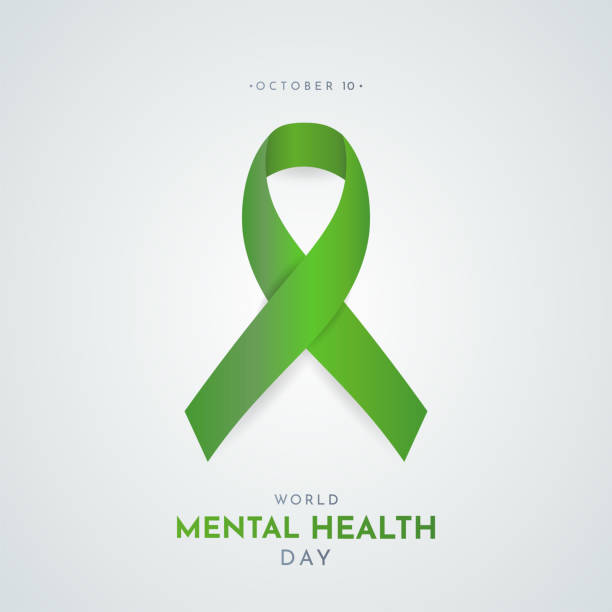What are “Impulse Control and Addiction disorders?”
According to WebMD, “people with impulse control disorders are unable to resist urges, or impulses, to perform acts that could be harmful to themselves or others. Pyromania (starting fires), kleptomania (stealing), and compulsive gambling are examples of impulse control disorders. Alcohol and drugs are common objects of addictions. Often, people with these disorders become so involved with the objects of their addiction that they begin to ignore responsibilities and relationships.”
Impulse control disorders usually first appear during childhood or adolescence.
What are the Distinct Types of Impulse Control Disorder?
Intermittent Explosive Disorder: This disorder, also known as IED, is characterized by persistent angry outbursts. The individual may be violent or aggressive to people, animals, and/or property. These episodes may only last half an hour and are usually triggered by a minor issue with someone the individual knows. These outbursts may result in legal or financial issues, disrupt an individual’s relationships, cause significant distress, and/or potentially result in problems at work or school. According to Harvard Health, around 5% to 7% of Americans will suffer from IED at some point in their lifetime.
Oppositional Defiant Disorder: An individual with ODD frequently loses their temper, is easily annoyed, and often becomes angry or resentful. The individual challenges authority figures, flout rules, bother others on purpose, and/or blame others for their problems. As a result, the individual suffers problems at work or school, and socially. Symptoms for ODD may appear as early as preschool. The prevalence rate is estimated to be around 3.3%.
Conduct Disorder: Conduct disorder consists of persistent behavior that violates social rules. The individual may be aggressive towards people or animals, destroy others’ property, lie, and/or steal, and/or violate rules, such as run away or skip school at an early age. This behavior causes serious problems socially or at school. Individuals over 18 are usually not diagnosed with this disorder. Adults with these symptoms are diagnosed with Antisocial Personality Disorder- for more information on this disorder, check out my article on “Psychotic Disorders.” The prevalence rate is estimated to be about 4%.
Kleptomania: Kleptomania is the act of impulsive and unnecessary stealing things the individual does not need. Individuals may steal things and give them to others or even throw them away. The disorder is NOT about the things stolen, but instead about the compulsion to steal and lack of self-control over this compulsion. Individuals may feel a sense of relief or gratitude after committing theft. Legal, family, career, and personal troubles are common for individuals with kleptomania. Between 4% to 24% of people who shoplift may suffer from kleptomania, and prevalence in the general population is about 0.3% to 0.6%.
Pyromania: Pyromania is when an individual repeatedly and deliberately sets fires. An attraction or obsession with fire and fire-setting paraphernalia, along with impulsive needs to set fires, and the relief and pleasure after doing so characterize this disorder. These individuals DO NOT set fires for any other reason other than their compulsion to do so to dispel their mounting tension. Pyromania is considered rare, and the lifetime prevalence of people in the United States who intentionally set fires is reported to be around 3.3%.
What are the Root Causes of Impulsive Control Disorders?
As of today, there is no single root cause for these disorders. However, temperamental, physiological, environmental, and genetic factors may play a role in the development of these disorders. Some factors that play into these disorders include:
- History of physical and emotional trauma
- Relatives with the disorder
- Serotonin imbalances
- Problems with emotional regulation
- Abusive, harsh, inconsistent, neglectful parenting
- Reduced basal cortisol reactivity
- Abnormalities in the prefrontal cortex and amygdala
- Difficult temperament as an infant
- Below average intelligence
- Exposure to violence
- Depression, Substance abuse disorders, Bipolar disorder, Schizophrenia, or ADHD
The Difference Between Impulsivity, Compulsion, and Addiction
There is an overlap between impulsive disorders, compulsive behavior, and addiction, and it highlights how drug use plays together with impulsivity. Any of these three components can result in individuals participating in activities they know are wrong. The key differences between them are the motivations behind the behavior as well as the individual’s reaction to the doings.
Impulsivity is defined as unplanned actions or reactions to internal or external stimuli that are carried out without regard to the consequences of those actions. Compulsions are repetitive actions that are done to avoid or resolve internal feelings of discomfort or tension.
Compulsive actions do not give off positive feelings and instead bring shame or distress to the individual. In the case of impulsivity, the individual feels no remorse for their doings and may feel satisfaction afterwards.
Addiction is when an individual repeatedly engages in detrimental behavior believing it to be pleasurable, like a drug high. Both addiction and impulsivity involve a disregard of consequences that could result from their actions, which can contribute to an individual taking up drugs or indulging on them so frequently they end up getting hooked on them.
Treatment
Caregivers can use strategies to manage the symptoms of impulsive control disorders. These include:
- Not giving positive reinforcement for impulsive behaviors
- Encouraging their loved ones to take interest in helping their community and society
- Avoiding physical discipline
- Remaining consistent when parenting or caring for the individual
Several types of therapy can be used when treating these disorders, such as parent management training, multisystemic therapy, and cognitive behavioral therapy (CBT).
Some doctors may prescribe medications, such as mood stabilizers or antidepressants, to manage symptoms.
Research has found that boot camps or sudden imprisonment DO NOT help manage the symptoms of impulsive disorders and can even worsen them.
As for how to prevent impulsive control disorders, there is no definite path of prevention. However, caregivers can minimize symptoms from becoming worse by taking the individual to a healthcare professional as soon as possible, where the doctor will suggest treatment plans for them.
Resources to Find Support/Treatment Options
Revive Interventions: A substance abuse program that will help you to stage an intervention. Call 24/7 at 1-866-351-3816, email at [email protected], or fill out an application: https://reviveinterventions.com/free-assesment/
American Addiction Center: A wonderful resource where you can get quality rehabilitation care and support 24/7! Call 24/7 at (888) 627-6402, or learn more about the admissions process: https://americanaddictioncenters.org/admissions
Talkiatry: Talkiatry is a program that assesses your personal situation and will assign you a psychiatrist tailored to you! To learn more visit: https://www.talkiatry.com
AptiHealth: AptiHealth is a great program to virtually meet with your therapist if you’re uncomfortable doing it in-person. Fill out an application: https://home.aptihealth.com/auth/self-signup
BetterHelp: BetterHelp is a popular service but for good reason! This application will get you a personalized therapist that you can meet over the phone, in a chatroom, or over a video-chat, all at a reasonable price! To begin the assessment, visit: https://www.betterhelp.com/get-started/
Sources:
https://americanaddictioncenters.org/co-occurring-disorders/impulse-control-disorder
https://www.medicalnewstoday.com/articles/impulse-control-disorders#prevention


 by
by 
